Your Voice, Your Vote: Improving the health service
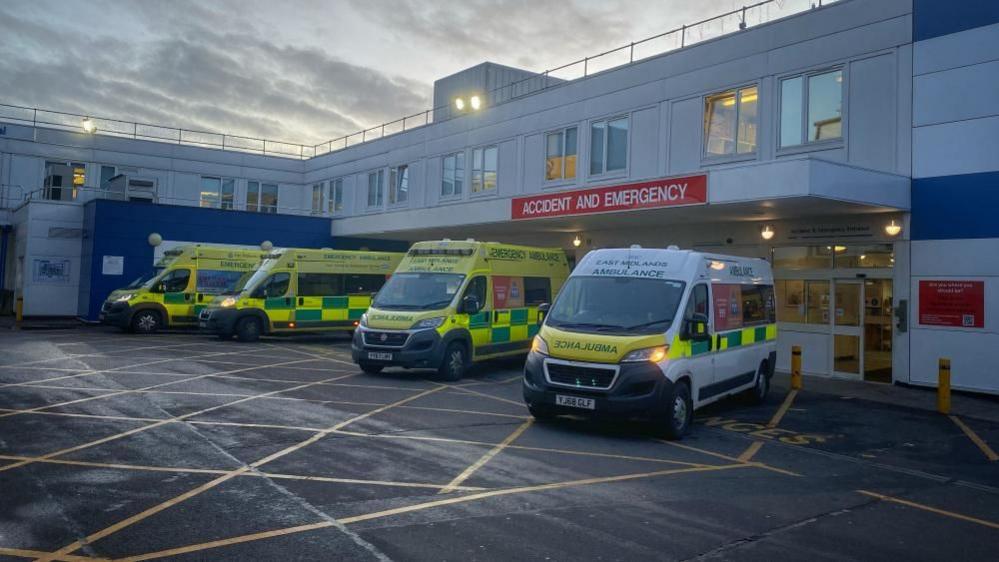
The NHS is a priority for many voters at the upcoming election
- Published
David Morgan suffers from cancer and knows that what happens to the NHS after this election will directly affect him.
He says that he is constantly having to tell doctors what is wrong with him even though it is in his medical notes, and mistakes are being made in his treatment.
Mr Morgan is among the many people who got in touch with the BBC via Your Voice, Your Vote to tell us that the health service was the most important issue for them in this election.
He wants to know what the candidates would do about the lack of joined-up thinking in the NHS, so "say you had a blood test in Leicester, [Northampton General] would say they can't see the results, so you'd have to have a blood test again in Northampton".
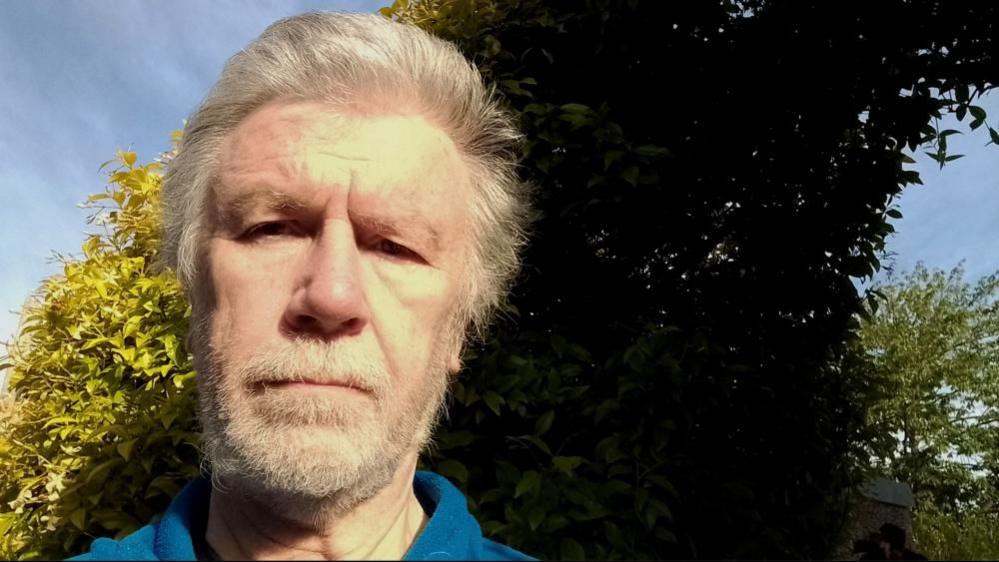
David Morgan wants to know what the candidates would do about the lack of joined-up thinking in the NHS
The 66-year-old gets "instant access" to the NHS as a cancer patient and "the doors open very quickly for you".
But he feels that health professionals, whether they are oncologists, surgeons, GPs or nurses, do not always read his file before his appointments.
He said: "They will wastefully prescribe tablets you can't swallow when you need soluble ones.
"They will not even know where your cancer is or whether you had a blood test or what medication you take."
In alphabetical order by surname, here is what the candidates from the main parties standing in Northampton North said:
Antony Antoniou, Reform UK
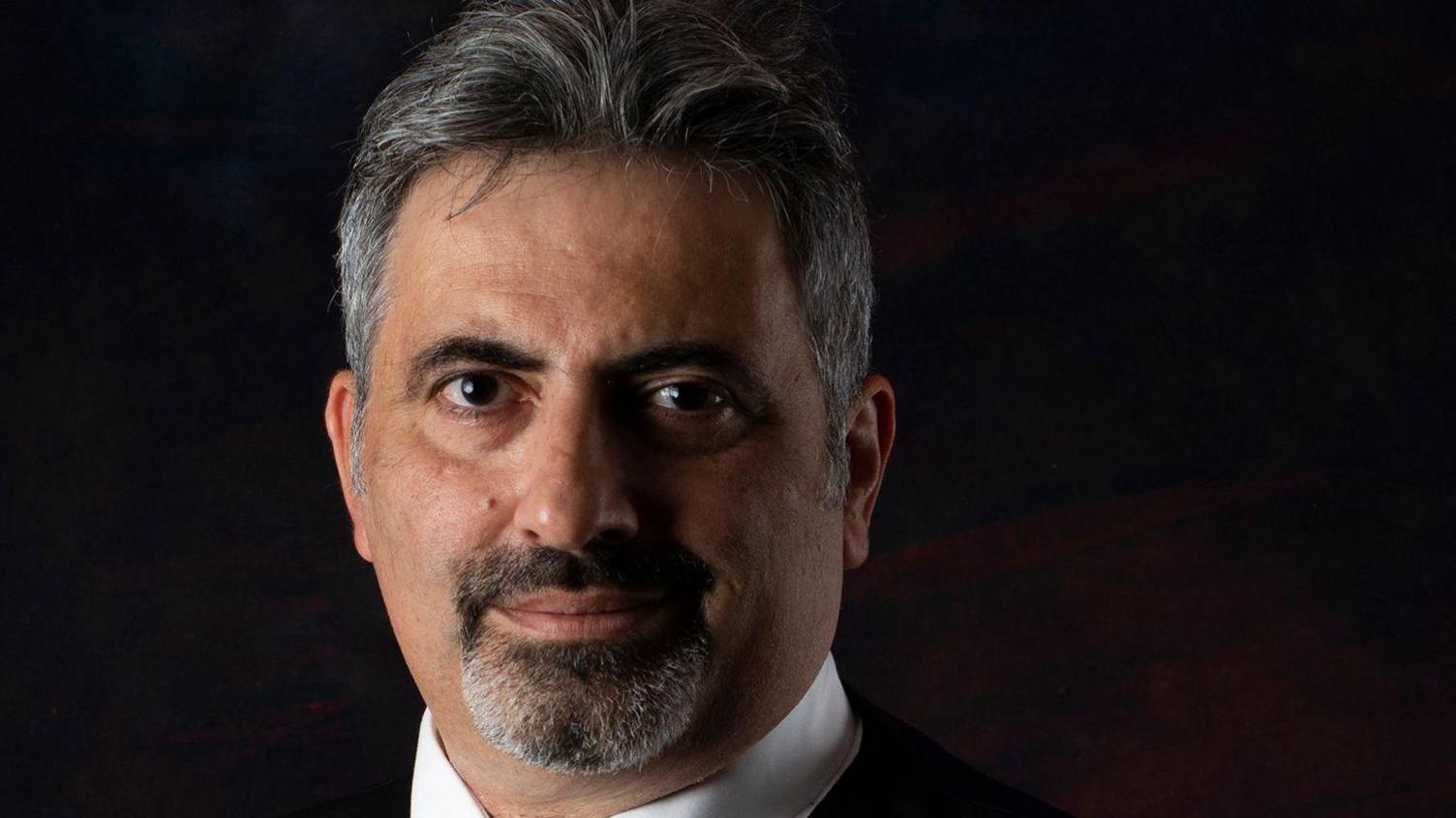
Antony Antoniou says the NHS should invest in better IT systems
The current practice often heavily relies on patients' self-reports to gather information, which, while valuable, can sometimes lead to incomplete or inaccurate data.
To address this issue, the NHS should invest in more integrated and advanced healthcare IT systems.
A holistic review of the NHS’s approach to disease management, coupled with the implementation of advanced, integrated health IT systems, would significantly enhance the quality of patient care.
This transformation would ensure that healthcare professionals have the necessary tools to provide accurate, timely, and personalised care, ultimately leading to better health outcomes for patients.
Eishar Bassan, Green Party

Eishar Bassan says the Green Party would invest £50bn in the health service
If I was elected, I would take your feedback forward as your experience supports the idea of an inefficient NHS. This lack of joined-up care is a symptom of an overstretched service.
With the Green Party’s £50bn investment into the NHS, we would call for a holistic review of the NHS and the way it deals with different diseases, and the interactions between medical staff and patients.
The lack of file reading could be rectified by introducing a “one-pager” that includes the necessary information for staff.
Also, as we have been funding cancer research, it would be beneficial to have these notes anonymised and shared for research and development.
Dan Bennett, Conservative
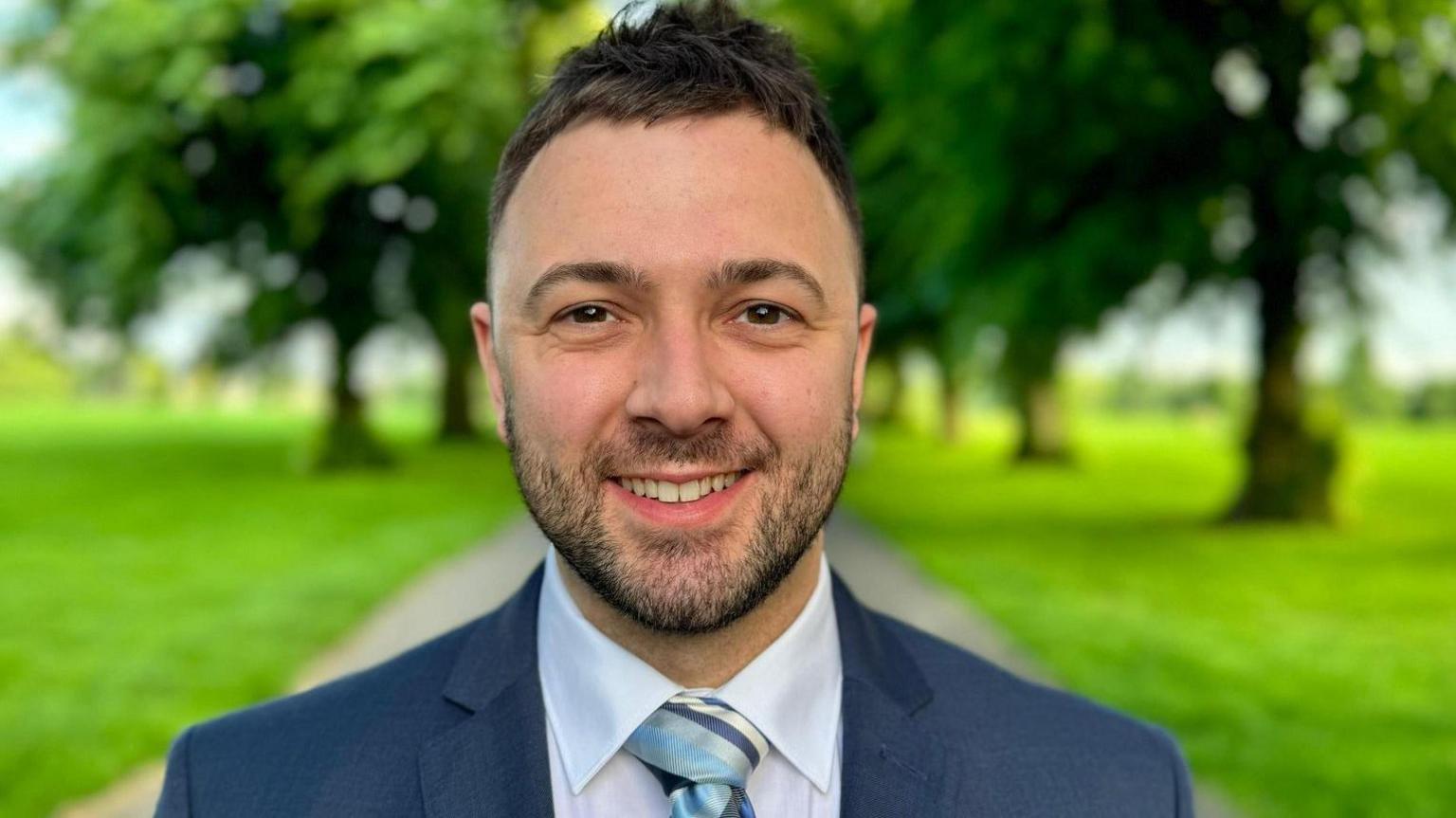
Dan Bennett says a holistic approach in the NHS is crucial
Having spent five years working in community pharmacy, I was concerned to hear Mr Morgan’s account of medical staff failing to read his file before meeting him and even prescribing medication. Such information is absolutely critical in safeguarding, as well as in ensuring an efficient service.
We were required to note and abide by such information on every single occasion.
The NHS certainly has its challenges, but this should not be one of them. A holistic approach within our health service is absolutely necessary, and it is imperative that whilst the staff may change along the way, the patient’s situation, requirements and peace of mind remain constant.
Paul Clark, Independent
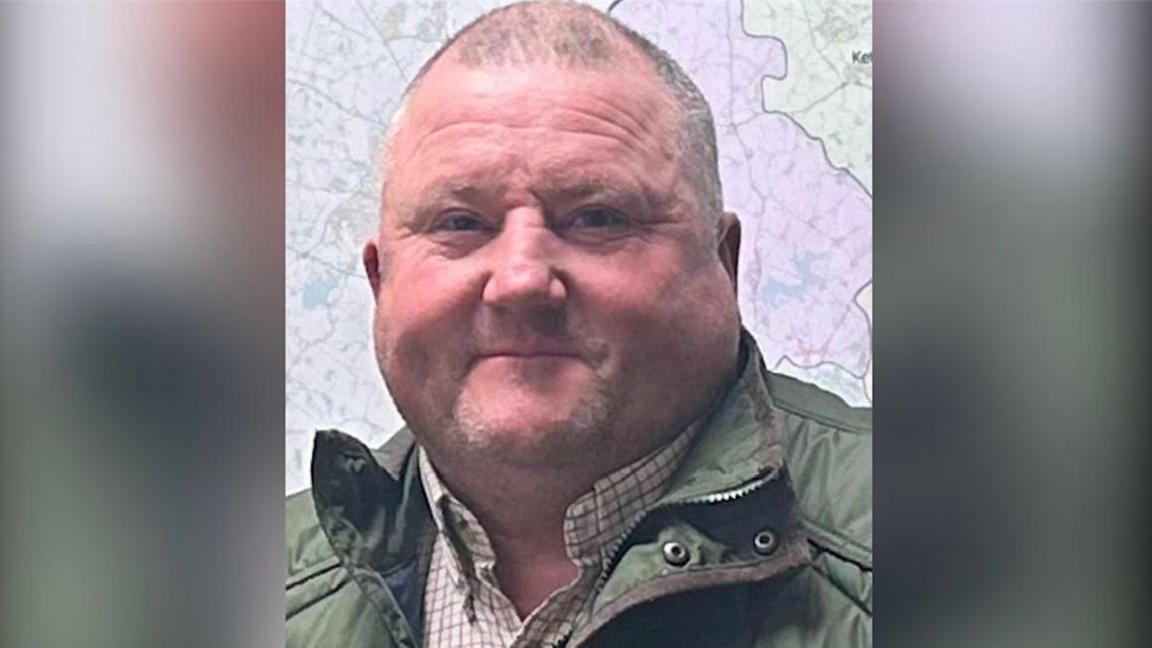
Paul Clark believes there should be substantial investment in the NHS
I strongly support a holistic review of how the NHS manages the treatment of various diseases, from initial GP visits to specialist care and beyond, to streamline processes and ensure better communication among healthcare providers.
The integration of these systems should prioritise patient-centred care, ensuring that all healthcare professionals treating a patient are fully informed about their medical history, current medications, and specific needs.
We need substantial investment in the NHS to address the broader systemic issues that have arisen from years of underfunding.
David's suggestion for a comprehensive review is not only timely but essential.
It is a call to action that I fully support and will advocate for if elected.
Chris Leggett, Liberal Democrats
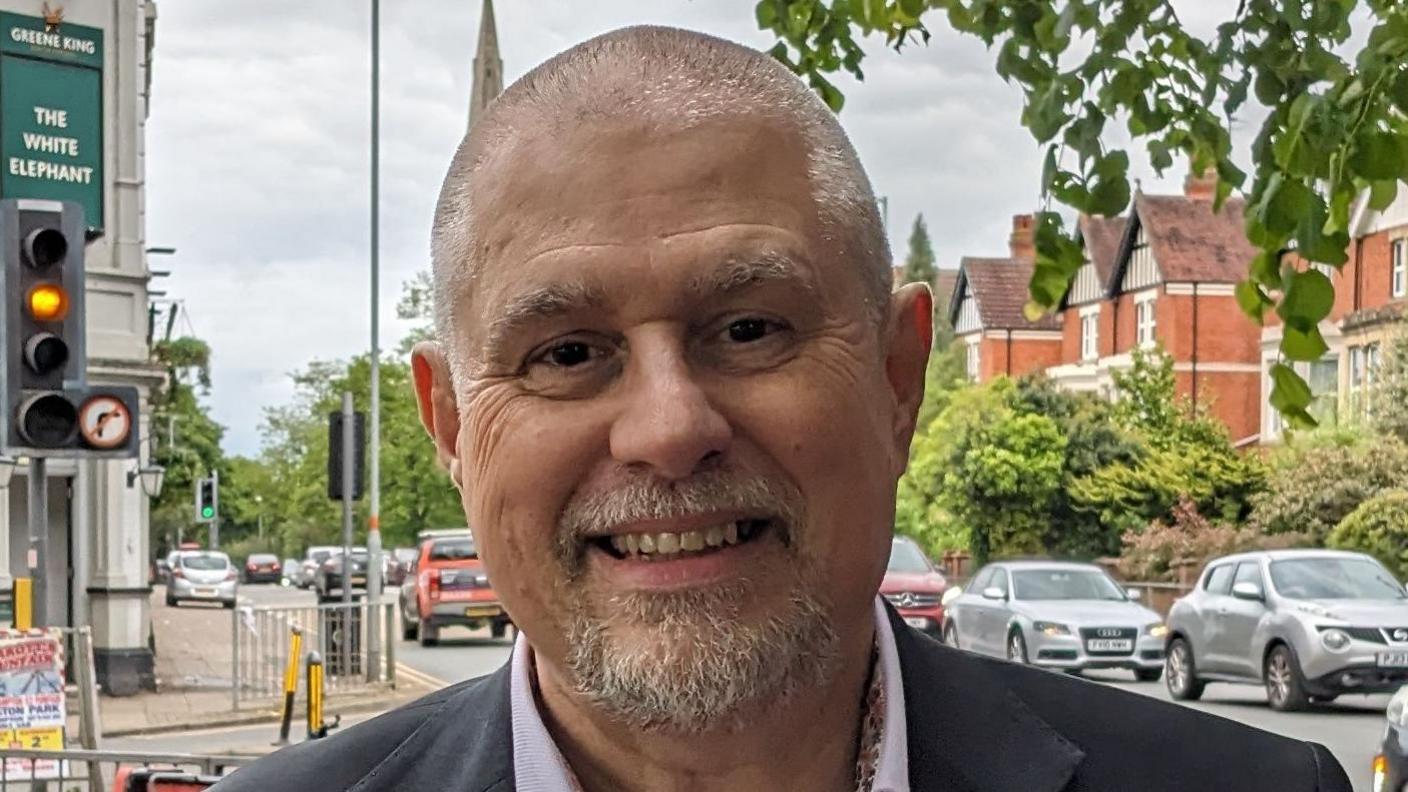
Chris Leggett says his party would guarantee doctors' appointments within seven days
With more than 100,000 staff vacancies in England alone, a crisis in staff retention, long waiting times, missed targets and poor outcomes, patient safety is being pushed into the danger zone.
Our plan will tackle the crisis at both the front door and the back door to the NHS.
We will give everyone the right to see a GP within seven days with 8,000 more GPs to deliver on it.
• Guarantee access to an NHS dentist for everyone needing urgent and emergency care, ending DIY dentistry and ‘dental deserts’.
• Improve early access to mental health services by establishing mental health hubs and introducing regular mental health check-ups.
Khalid Razzaq, Workers Party
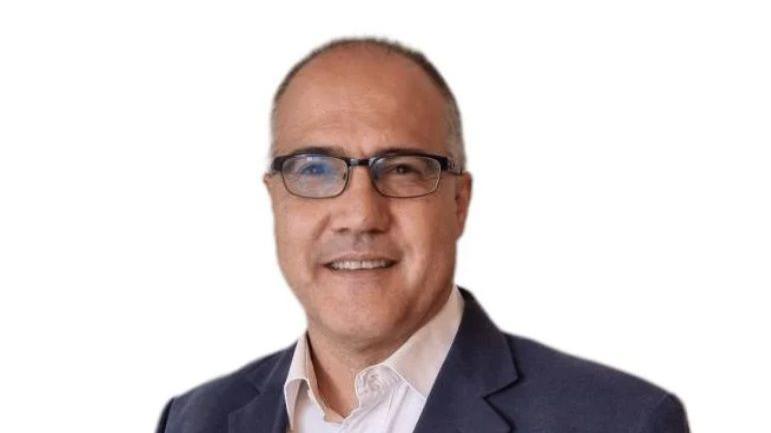
Khalid Razzaq says his party will make sure public services serve the people
The NHS is currently grappling with the detrimental effects of inefficient Public-Private Partnerships (PFI) introduced by New Labour, which are siphoning off essential funds from patient care.
The Workers Party is committed to investigating and reforming these contracts to ensure our tax money is directed towards public services, not private profits.
We plan to significantly reduce the NHS's administrative and management costs, which have surged from 4% to 14% of the budget over the last 17 years.
Our unwavering commitment is to bring efficiency, control, and accountability back to the people, ensuring that public services serve the needs of the British people first.
Lucy Rigby, Labour

Lucy Rigby says her party will reform the way services are delivered
I'm sorry to hear about David's experiences of the NHS - it sounds incredibly frustrating.
Stretching our brilliant NHS staff so thin doesn't just result in the highest waiting lists on record, but it also means doctors and nurses have less time with every patient.
Labour has a plan to not only get waiting lists down but also to reform the way that services are delivered to patients.
We will bring back the family doctor, harness the power of new technology, and get the NHS working differently with increased collaboration to make sure that fewer people have the frustrations that David has had.
If you vote Labour, you'll get change.

What really matters to you in this general election? What is the one issue that will influence your vote? Click the button below to submit your idea, and it could be featured on the BBC.
